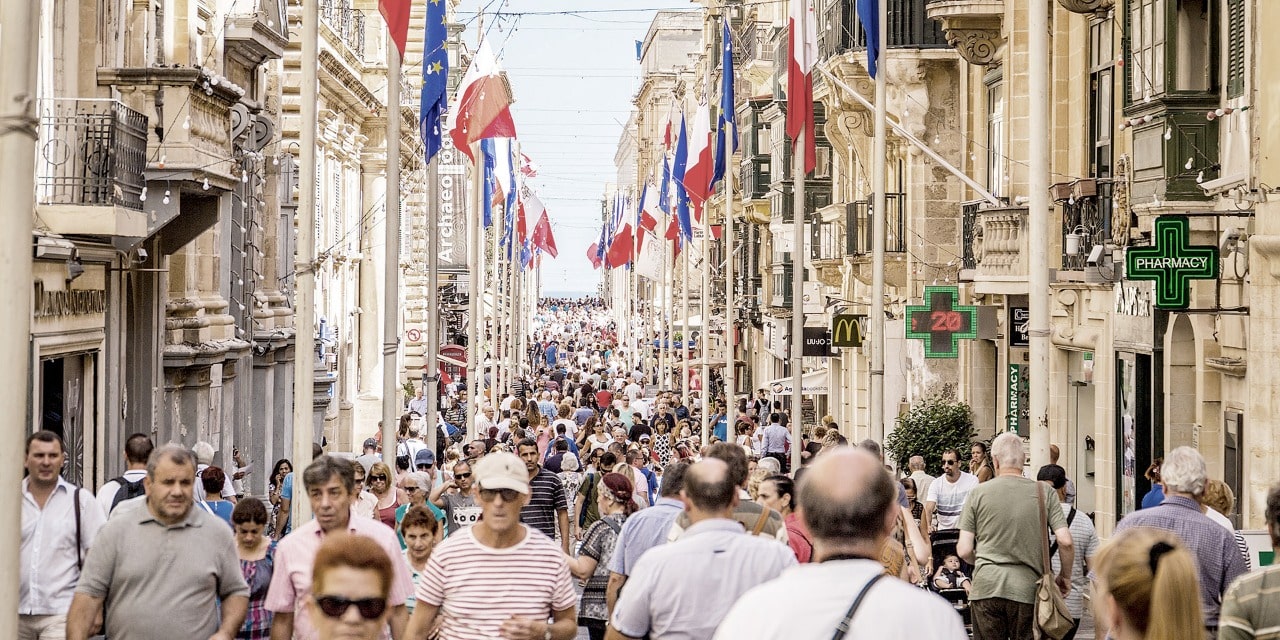The Malta Residency Permit has become highly desirable in recent years. Malta may be the smallest of all states in the EU. Still, its natural beauty, Mediterranean life and architectural brilliance make it a popular choice among the global crowd.
To stay in Malta for long-term or short-term purposes and to experience the country’s flourishing industries, you must acquire a Malta Residency Permit.
Malta’s fast-growing economy, and multiple benefits for family life have led many to enquire about how they can obtain residency in the country.
Listed below are the types of Residency Schemes in Malta.

Types of Residency Programmes in Malta
1. Malta Ordinary Residence Programme
- Financial stability
- Employment or studies in Malta
- Having family members in Malta
- Physical address evidence in Malta through buying or renting a property
- Physical stay in Malta for at least three months
You may renew your Ordinary Residence every five years.
2. Malta Global Residence Programme
The Malta Global Residency Programme (MGRP) allows non-EU/EEA/Swiss nationals to acquire a special tax status.
The programme is for applicants looking to buy high-value property in Malta while benefiting from a special tax status and a residence permit.
The following are eligible to apply:
- Third-country and non-Maltese/EEA/Swiss nationals
- Applicants with personal health insurance, as well as for the dependents
- Financially-stable and Fit and Proper Test passer
- Applicants with a valid travel document
- Applicants fluent in one of Malta’s official languages
- Holder of a qualifying property
- Applicants are represented by an Authorised Registered Mandatory (ARM)
Successful applicants are subject to a minimum annual tax payment of €15,000 and the possibility of claiming double taxation relief. Income tax is at a rate of 15% on foreign source income remitted to Malta.
With the MGRP, applicants can include their spouse, minors, children in their care, and adopted adult children with special needs.
Read more about this programme: Malta Golden Residence Programme

3. Malta Single Permit Application
The Single Permit authorises third-country nationals to legally reside and work in Malta for a defined period, which may be further renewed.
Eligibility for the programme depends on the following qualifications:
- Physical address evidence in Malta through buying or renting a property
-
Employment, self-employment, or holding a company in Malta
-
An employment license is required to work in Malta.
-
Self-employment requires an investment in Malta capital expenditure of at least €500,000 within six months from when Jobsplus issues the license.
-
Have a business plan and commitment to recruit at least three EEA/Swiss/Maltese nationals within 18 months of establishment.
-
The company must lead a project formally approved by Malta Enterprise and formally notified to Jobsplus.
Self-employment applies to Shareholders of a Malta company, given that they have paid share capital of at least €500,000. Share capital cannot be redeemed, reduced, or transferred for the first two years and should be through cash or stock injection in Malta.
In the case of applying for Employed applicants, a local employer should endorse applications. They can be made even with the applicant still abroad or legally staying in Maltese territory. Successful applicants may further renew their permits.
Third-country nationals may apply for work, excluding international or humanitarian protection in Malta or a European Union Member State.
4. Nomad Residence Permit
Malta’s Nomad Residence Permit, introduced in 2021, is a highly attractive scheme for digital nomads and other remote workers. The permit allows holders to stay in Malta for up to a year and gives them access to several benefits, including healthcare.
To qualify for the permit, applicants must have a valid passport, travel insurance, and enough money to support themselves during their stay in Malta.
Read more about the Nomad Residence Permit: Guide to the Malta Nomad Residence Permit
5. Malta Permanent Residence Programme
The Malta Permanent Residence Programme provides an opportunity for non-European nationals and their families to become permanent residents of Malta by investing in the country.
Permanent Residency in Malta allows you to move and settle down in the country and enjoy the benefits of the status, avoiding tedious renewals or mandatory minimum physical stays. It also allows you to maximise visa-free travel to all Schengen Areas.
There are two investment options, depending on whether you opt to purchase or rent a property. Both offer the same benefits for a lifetime.
Requirements for Malta Permanent Residency Programme:
- Minimum 18 years of age and a non-EU citizen
- Be able to invest in necessary amounts to meet qualifying requirements.
- Need to maintain and hold the property investment for a minimum of five years
- Maintain health and have a clean criminal record
- Not subject to criminal proceedings
- Acquire global health insurance coverage
- Submit a record of sufficient funds and proof of assets of at least EUR 500,000, with at least EUR 150,000 in financial assets.
- Not be considered a potential national security risk
- Have a stable and regular source of income
Read more: A Complete Guide to the Malta Permanent Residency Programme
Download our guide for an in-depth view of the MPRP.
The MPRP also grants Permanent Residency to the dependants, such as children and parents, under one application. This allows children to retain their status even when they reach adulthood.
Moreover, the Permanent Residency may also extend up to the spouses of children and grandchildren.
If you aim to spend a lifetime in Malta, the MPRP is what you’re looking for.
Recent Insights
- Navigating Malta’s Legal and Regulatory Landscape in 2024: A Guide for Entrepreneurs
- Portugal Golden Visa: 2024 Updates on New Requirements and Investment Paths
- European Commission vs. Malta: What the Future Holds for Citizenship by Investment
- European Commission vs. Malta: Malta's Citizenship by Investment Programme, Sovereignty and the Question of Genuine Links
- A Complete Guide to the Malta Permanent Residence by Investment Programme in 2024
